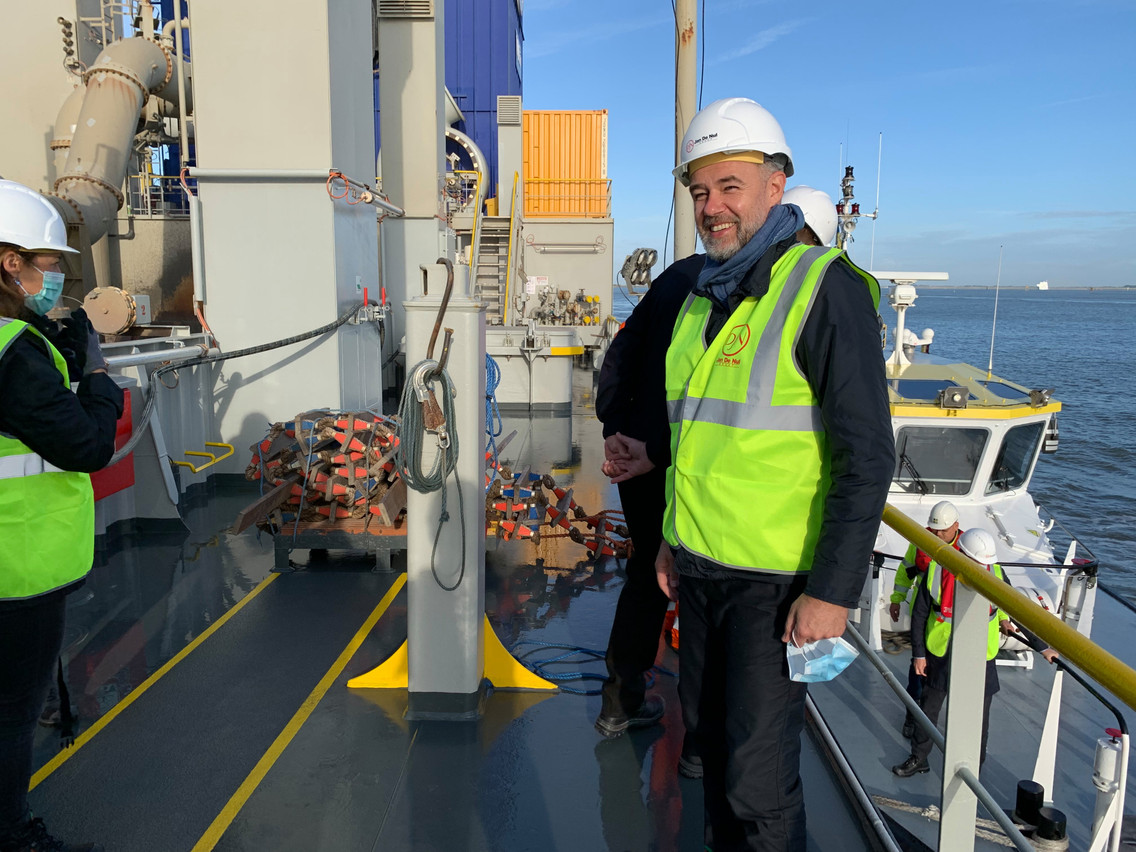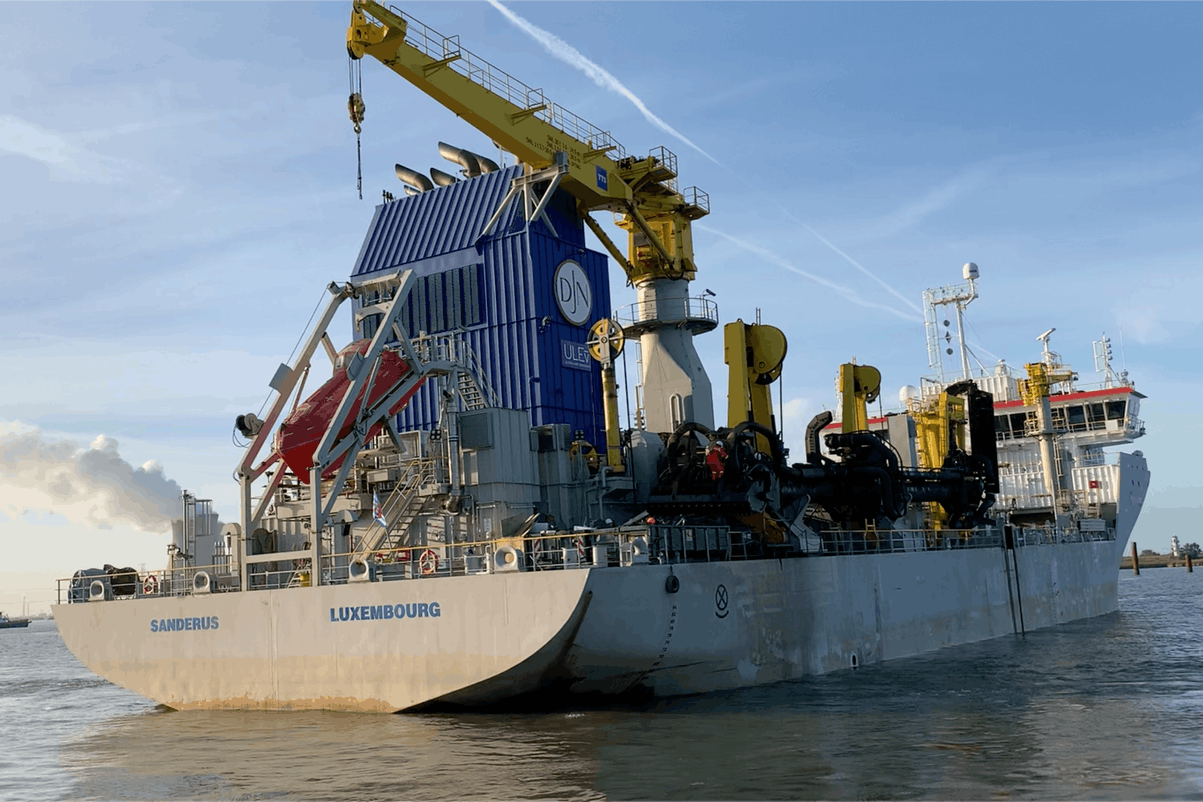“It is a sector that has less visibility than others such as space or finance, but it is of good quality and in good health, and is developing slowly but surely,” said the Fayot (LSAP) on Tuesday. He was visiting the Sanderus, a 111.7-metre long dredging vessel operating on the Scheldt in the port of Antwerp, operated by the company Jan De Nul but flying the Luxembourg flag.
The minister’s description seems to sum up the Luxembourg maritime sector: modest and not excessively ambitious, but solid. The Luxembourg maritime register was created in 1990, but the idea was never to make a maritime power out of the grand duchy. As of 2020, there were 216 ships under the Luxembourg flag. It’s about quality not quantity, Fayot and the commissioner for maritime affairs, Robert Biwer, have repeatedly said.
Green shipping
The visit to the Sanderus was an opportunity to underline this view: this vessel of the Jan De Nul Group--whose head office is in Luxembourg and which has 76 vessels under the Luxembourg flag (out of its 82 in total), making up one third of the country's register--is one of the latest generation dredgers, with ultra-low emissions. “It’s a vessel that is resolutely committed to ‘green shipping,’” said Fayot.

Franz Fayot, here aboard the Sanderus, wants to see a more sustainable mentality in the maritime sector. Photo: Franz Fayot
“We clearly don’t want certain sectors, such as oil tankers, fishing or giant cruise ships, which are environmentally complicated activities,” said the minister. His desire is for “other sectors like that of Jan De Nul, which are putting up windmills and dredging, to have a more sustainable mentality.”
Niche diversification
However, when the register was originally set up in the early 1990s, it was far from having such environmental ambitions. “It was a new economic diversification niche, born out of the weakness of the Belgian framework at the time,” said Fayot, “which had created a strong demand from the Belgian ship-owning sector to find another place to put their flags. Luxembourg filled this gap, with the idea of creating a new opportunity for the financial sector.”
But then, he goes on, “as is often the case, it developed in another direction. Certain niche sectors such as dredgers or transport ships came to us at a certain point--also opportunistically, it must be said. But we have managed to retain them and we intend to develop them.”
In any case, the maritime sector brings “real substance” to Luxembourg despite the fact that it is a landlocked country, said Biwer. In addition to the 300 direct jobs that the maritime sector currently provides, around 2,000 people work in related activities including finance or legal affairs. Jan De Nul has 6,267 employees, of which 100 are employed at its head office in Capellen.
Tailor-made for shipowners
Taxation is, of course, not unrelated to the attractiveness of the Luxembourg register. But there are other arguments: because of the good social security cover, the seafarers who are registered there are “very happy”, said Biwer, who adds that this “creates loyalty between the seafarer and the shipowner.”
Above all, the limited size of the register allows the commission for maritime affairs to respond to very specific requests according to the needs of the shipowner and to make tailor-made solutions, which is “very much appreciated by shipowners,” said Biwer.
The Luxembourg maritime sector is now completely credible in the industry, Biwer said: “When we go to the International Maritime Organisation or the European Maritime Safety Agency, Luxembourg is well represented. It is more in ‘unenlightened’ circles that we still sometimes have recognition problems. But we can manage to overcome this.”
Consolidating and innovating
In the coming years, the idea is not to expand the fleet, but to “consolidate this activity, or even to develop it in strong partnerships with companies like Jan De Nul,” said Fayot. “The main thing is to retain the fine companies we have with us and to do interesting things with them, whether in terms of research and development or investment in more sustainable vessels.”
All the while, of course, one must remain competitive. “The competition is there, but it has to be on a level playing field. A shipowner can choose overnight to go to another flag,” Biwer said, pragmatically. It will therefore be a matter of supporting ambitious projects but with the necessary caution.
This article in Paperjam. It has been translated and edited for Delano.
